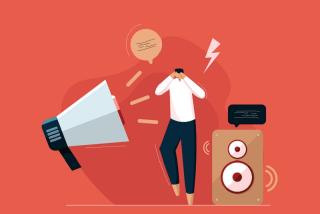How Loud is That Sound

2 min read
Test Your Decibel Knowledge
Unless you are consistently around very loud sounds every day, you may not think much about the loudness of sounds and the potential effects on your hearing. People who have jobs that involve very loud sounds, such as construction sites, manufacturing plants, or concert venues, are aware that they are regularly exposed to high levels of noise. Protective ear wear may be a required part of their work.Sound is measured in a unit known as a decibel. According to the National Institute on Deafness and Other Communication Disorders (NIDCD), noise measuring at 70 decibels or below is generally safe for your hearing, while long-term exposure to sounds at 85 decibels or higher can be damaging to your hearing.
Noise-Induced Hearing Loss
Hearing loss incurred due to prolonged exposure to high-decibel sounds is known as Noise-Induced Hearing Loss (NIHL). According to the Center for Disease Control (CDC), NIHL affects about 40 million adults aged 20-69. NIHL can affect people of any age, and the damage can be temporary or permanent. Understanding the kinds of sounds that can be damaging is important so that proper precautions can be taken. Some common sounds at safe decibel levels include:- Normal conversation level
- Whispers
- Alarm clock
- Diswashers or laundry
- Moderate rainfall
- Lawnmowers
- Blow dryers
- Power tools
- Construction
- Concerts/loud music
- Snowmobiles
- Heavy traffic/car horns
- Sporting events
- Speech or other sounds seem muffled
- Tinnitus (ear ringing)
- Hypersensitivity to loud sounds
- Trouble understanding speech
Preventing Noise-Induced Hearing Loss
Noise-Induced Hearing Loss is the only type of hearing loss that is preventable. Taking proper precautions if you are in a high-decibel environment is important for protecting your ears and your hearing. Some ways to avoid NIHL are:- Using earmuffs, protective headsets, or earplugs in high-decibel environments.
- Put distance between yourself and the loud noise - for example, moving further away from the source of a fireworks display to watch from a distance.
- Be aware of loud noise in your vicinity and avoid long exposure - for example, putting up car windows when driving through construction zones.
- Have your hearing tested if you suspect hearing loss or damage.
